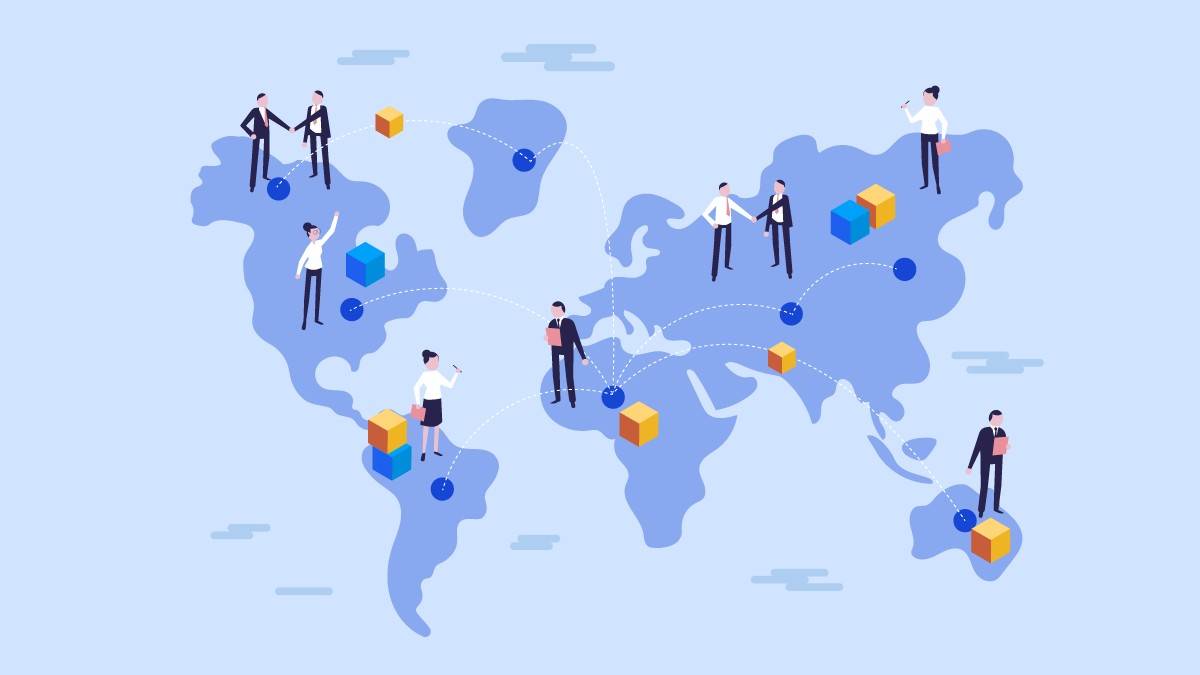Around the time when trading between various countries grew simpler, the idea of Incoterms gained popularity. The globe seemed smaller due to improved air and sea travel, yet there were significant discrepancies in business practices and legal procedures. Without stated Incoterms in place, doing business in international commerce may lead to serious misunderstandings on both sides of a negotiation. Incoterms have streamlined the shipping of products in three key ways since their acceptance by the International Chamber of Commerce (ICC) in 1939.
International firms are recognized to benefit from Incoterms’ promotion of effective communication. It’s crucial from a financial perspective to comprehend the deeper effects that various regulations may have on the market today. The fundamental benefits of shipping Incoterms have not changed since they were first introduced:
- Clarity between Trading Nations
- Management of costs and liabilities
- Supply Chain Management
Clarity between Trading Nations
Incoterms were created to facilitate global commerce. Not only do different countries have different languages and currencies, but they also have different business lingo and practices.
International adoption is a little less difficult due to shipping Incoterms being formed by an organization that is independent of any one country.
Through established norms characterized by shared codes for all kinds of transportation, Incoterms provide legal clarity between shipping businesses of different countries.
All forms of transportation must adhere to seven Incoterms. The conditions outlined in the Incoterms will remain the same whether the delivery is made by vehicle or air transport.
EXW: Ex Works
DAP: Delivered at Place
DPU: Delivered at Place Unloaded
DDP: Delivered Duty Paid
FCA: Free Carrier
CPT: Carriage Paid To
CIP: Carriage and Insurance Paid To
Management of costs and liabilities
Each party’s obligations in terms of money and law are among the things that shipping Incoterms make clear. This may be said to be the most significant benefit of employing Incoterms in international commerce.
For instance, shipping Incoterms provide guidelines for determining who is in charge of the cargo at any particular stage of the shipping procedure. This includes paying for any item and offering insurance. This establishes responsibility in the event of product loss or any damage.
You should be aware of your financial duties in case of an emergency given the increase in container ship fires and other complete loss incidents. Carriers sometimes take up financial responsibility for losses, although often not for the whole amount.
The issue is still open whether the damage happens at a port or while being transported by truck or train across the land. The buyer or seller is in charge of the cargo up to a certain point, after which the other assumes responsibility, depending on the shipping Incoterms that were previously agreed upon. As long as everyone is aware of the agreements, clearly defined roles may lessen conflict between you and your suppliers. Incoterms provide at the very least a route ahead.
Supply Chain Management
These days, saying that you have control over your supply chain could cause some people to chuckle. Maintaining supply networks is a problem in itself, what with escalating conflicts shutting down key ports and cargo ships getting trapped in the Suez Canal. To have more or less control over your cargo, you may use Incoterms to specify trade agreements with suppliers. You get to pick which carriers and potentially which ports will handle your goods when you take on the duty of planning shipment or loading.
When you consider all the variables, this amount of impact may significantly alter the situation. The Port of Los Angeles is the final destination of the majority of shipping routes, like in the case of importing from India. You can decide to go with a carrier that will route via the Panama Canal and into a Gulf or East Coast port instead, keeping in mind that congestion and port costs there are on the increase. You could even want to base your choice of port on how well it handles the ships that do arrive there.











Comments